Best Vehicle to Live In for Traveling the Country
So, you are intrigued by living the nomadic life by living in a vehicle. That’s great!
Like many others, one of the first questions you may be asking yourself is… “What is the best vehicle to live in?”
The answer to this could greatly vary since each person looking to live the nomadic life will have a different set of needs and goals for their new build. There are many considerations when deciding to choose a vehicle to live out of.
We will cover in detail the pros and cons of each of these considerations including:
- Gas Mileage
- Affordability
- Mobility
- Space
- Stealth
- Off-Grid Capabilities
- All-Season Travel (Insulation)
- Maintenance
What vehicles are most common when building out a new home? We will look at some common vehicles to live out of which include the following.
Table of Contents
Sprinter Van
Cargo Van
Conversion Van
Pop-up Camper Van
Hatchback Car
4WD SUV
Pickup Truck with Camper
School Bus
Box Truck
Class B RV
Class A RV
Ambulance
Let’s dive into each vehicle and the pros and cons of living out of them.
Sprinter Van
The Sprinter Van or equivalent van (like the Ram ProMaster) is an extremely popular option since it has a raised roof and allows you to stand up comfortably without having to be hunched around when inside your vehicle.
Models in this category can vary from 10 – 16 feet and may or may not include windows. This type of van will require a completely new build-out on the interior but allows you to include anything you would want for your new home.
Another plus is the fact that they have decent gas mileage for the size, and you can get away with parking stealthily in many areas that you could not with a motorhome.
The downside?
These vans tend to be extremely expensive due to the popularity and convenience of the vehicle.
Pros/Cons of Living in a Sprinter Van
Gas Mileage – 4/5
The gas mileage for a Sprinter Van can average out around 20 mpg making it an excellent choice for saving money if you plan on traveling around quite a bit.
Affordability – 2/5
Sprinter Vans are EXPENSIVE. Finding a used van with low mileage seems to be a difficult task and is often overpriced in the United States. If you are planning on buying a Sprinter Van, we recommend checking out multiple sources before choosing one.
Mobility – 4/5
These vans typically have higher clearance than other vehicles and are a good choice for dirt and gravel road that are off the beaten path without requiring a 4×4 vehicle.
And yeah before you go out for your trip make sure your vehicle is perfectly fit. If you need any accessories or gears Australia’s most reliable Brixton 4×4 & Adventure is here for you.
Space – 4/5
Space can vary with the length of these vans. Overall, we have seen people be able to include showers, toilets, a bed, and any other essential living features in these vehicles.
Stealth – 5/5
Regardless of having windows or not, a Sprinter Van can get away with looking like any other vehicle when parked on the street overnight.
Off-Grid Capabilities – 5/5
The Sprinter Vans have plenty of space to add solar panels to be able to run any applications off-grid.
All-Season Travel (Insulation) – 3/5
The Sprinter Van might not be the best choice if you are looking to live in there during cold winters. While adding a heater is obtainable, it is difficult to install enough insulation to retain heat in the vehicle due to the size.
Maintenance – 3/5
These vans are known to have problems from time to time and with more mileage on the vehicle comes more repairs and maintenance. The repairs are still going to come less often than a larger vehicle like a box truck or a motorhome.
Overall Living Score for Sprinter Van – 30/40
There is a reason why Sprinter Vans have become so popular for nomadic living. With the ability to include all necessary living appliances and fantastic mobility and space, the Sprinter Van is one of the best choices for living a life on the road.
Cargo Van
The cargo van is another option for people interested in vehicle living since it is a low-cost alternative to a van with a higher top. While these vans can also extend up to 16 feet, having a low roof can be a difficult task for taller folks.
Pros/Cons of Living in a Cargo Van
Gas Mileage – 4/5
The gas mileage for a Cargo Van can average out around 20 mpg for newer models while older models may be as low as 12 mpg. Overall, it is still a much cheaper option than any conventional motorhome.
Affordability – 5/5
Cargo Vans are much more affordable than a Camper Van or a Sprinter Van. You can find older models with extremely low mileage which could mean less to worry about over the course of the van’s life.
Mobility – 4/5
Cargo Vans usually have high clearance to be able to take you off-road when you are looking to camp in those hard-to-reach areas.
Space – 2/5
While space can vary depending on the length of the van, you can still add in necessities such as a stove or bathroom. The biggest issue here is having a low roof so you will be crouching around while in the vehicle.
Stealth – 5/5
Cargo Vans are used for multiple reasons and are a great option for stealth camping. People most likely won’t even consider someone living in a cargo van.
Off-Grid Capabilities – 5/5
The Cargo Van has plenty of roof space for solar panels to run your off-grid applications include a water heater and a stove.
All-Season Travel (Insulation) – 2/5
Like the Sprinter Van, there is not much space to work in thick insulation in your van. This would most likely not retain heat and be a hard choice for those looking to camp out in cold winter climates.
Maintenance – 3/5
These vans are not difficult to maintain and repair and how often it needs to be repaired will depend on how many miles are being put on it. Overall, these vehicles are typically easy to work on.
Overall Living Score of the Cargo Van – 30/40
For those interested in buying an affordable vehicle to live in at the expense of not having a high roof, then this type of van might be perfect for you. Keep in mind that it may be difficult to stay warm in harsh winter climates.
Conversion Van
Conversion Vans are vans that are already built out on the inside with certain applications and furnishings. They have also been around for years so finding an affordable vehicle that is older is not a difficult task.
One of the main issues that come with buying a conversion van to live in is the fact that it is already pre-built and might be missing some important features that you would want in a mobile home on wheels.
Pros/Cons of Living in a Conversion Van
Gas Mileage – 3/5
The gas mileage on conversion vans can vary depending on the age and model but expect to gain anywhere from 14 – 19 mpg.
Affordability – 4/5
Conversion vans can be quite affordable. You can find some good deals on older models with low mileage. You can usually find parts pretty easily as well.
Mobility – 3/5
Conversion vans generally have high clearance and can be taken on many roads off the beaten path if it is only two-wheel drive. Some of the newer models include 4×4 capability but comes at an extreme price point.
Space – 3/5
A conversion van has a good amount of space but can often lack essential needs for people looking for basic amenities. Most do not come with cooking capabilities or a bathroom.
Stealth – 5/5
You see conversion vans everywhere. You can get away with parking just about anywhere without people thinking twice about someone living in there. This is certainly one of the stealthier options to travel in.
Off-Grid Capabilities – 4/5
Most conversion vans do not come with off-grid applications. They are generally not built for long term traveling and can lack the infrastructure to use the vehicle off-grid out of the box. Building additional off-grid options can mean tearing into the upholstery but can be possible.
All-Season Travel (Insulation) – 2/5
As these vans are not built for long term travel, they often lack the necessary insulation to travel in during cold winter months. You might want to think about a propane heater (with proper ventilation) for this route.
Maintenance – 4/5
Conversion Vans are a dime a dozen. With so many on the market, finding parts for popular models are not hard to come across and as long as you are not too rough on the vehicle, you can expect repairs to be minimal compared to other options.
Overall Living Score of the Conversion Van – 30/40
This type of van is a good choice if you are looking to travel in warmer climates and have a low budget. With a couple of additional add-ons, you can have a travel van for a low cost that is already pre-built with some necessary amenities to live in.
Camper Van
Who hasn’t dreamed of traveling the country in a VW Microbus? While there are many models of camper vans apart from the VW bus, the concept remains the same. It is a vehicle that is pre-built for travel- which comes at a high price point. Regardless, camper vans are certainly one of the coolest options for travel.
Pros/Cons of Living in a Camper Van
Gas Mileage – 3/5
The gas mileage for a camper van is comparable to the conversion van. You might get anywhere from 12 – 24 mpg depending on the age of the vehicle.
Affordability – 2/5
Well, that’s the bummer on these vehicles. They are so dang expensive, and it is hard to justify spending so much on a vehicle to live in.
Mobility – 4/5
The campervan generally has high clearance and can be taken on many roads off the beaten path if it is only two-wheel drive. Some of the newer models include 4×4 capability but comes at an extreme price point.
Space – 3/5
The camper van fits as much as it can with the space but keep in mind since it is a pop-up camper, that you will not be able to walk up straight in the vehicle.
Stealth – 1/5
Another downside to the camper van is the fact that you must pop the top to be sleeping in the vehicle. This is obviously a dead giveaway for anyone trying to stealth camp.
Off-Grid Capabilities – 4/5
Like the conversion van, this vehicle comes “pre-furnished” which makes it more difficult to build in off-grid applications. Many of these vehicles come pre-equipped with a 240V campground hookup. That doesn’t mean you can bust out the DIY mind and add some solar panels to hook up the current applications.
Overall Living Score of the Camper Van – 26/40
This type of van is a good choice if you have deep pockets, want to travel around in style, and are willing to spend the money on buying a sweet vehicle. We give it an additional 4 points toward the living score because of how stylish and convenient these vehicles are.
Hatchback Car (Think Suburu Outback)
Living out of a hatchback is certainly not for everyone. It is for the person that wants to live as minimal as possible. For the outdoor enthusiast that can get away without having any living amenities other than a bed, then this might be a good fit.
Pros/Cons of Living in a Hatchback Car
Gas Mileage – 5/5
You can’t get away with much better gas mileage than having a small hatchback to live out of. Expect to obtain anywhere from 32 – 48 MPG depending on the age and model of the hatchback.
Affordability – 3/5
Hatchbacks are also an affordable option. While they may not be as cheap as an SUV or car that is similar in size, they are still a good option since they are low-cost for having enough room to sleep inside.
Mobility – 5/5
Many hatchbacks come with 4×4 ability making them one of the most mobile vehicles to live out of. Hatchbacks will be able to take you on the most remote roads possible.
Space – 1/5
You don’t need me to tell you how much space you will be limited to if you live in a vehicle this size.
Stealth – 5/5
Who in their right mind would think that someone is sleeping in the back of a car? With some curtains, the hatchback will be a great vehicle for stealth parking.
Off-Grid Capabilities – 0/5
Not much can be done with adding off-grid applications and solar panels to a hatchback. This vehicle should be for the person who wants to live minimal in their vehicle.
All-Season Travel (Insulation) – 0/5
Sure, you can run your car heater for a bit while sleeping in a hatchback but once you turn that heater off, it is going to get cold REAL fast.
Maintenance – 2/5
Hatchbacks are notorious for having common issues including having to replace the head gasket. While they are great vehicles, they may require more maintenance than a cargo van or regular car.
Overall Living Score of the Hatchback Car – 24/40
Are you a “dirtbag” outdoor enthusiast that can get by living minimally? Then this might be the option for you.
4 Wheel Drive SUV
This option is like the hatchback but offers a bit more room and comfortability when paired with a pop-up tent on top of the vehicle. Adding a 2 person rooftop tent expands your sleeping space significantly, making it a great option for longer trips. With more storage and the ability to carry extra gear, an SUV balances mobility and comfort better than a hatchback.
Pros/Cons of Living in a 4WD SUV
Gas Mileage – 4/5
OK, so maybe you won’t get the same gas mileage as a car but having an SUV is going to be great on gas mileage like the cargo van option. Expect anywhere from 22 – 37 mpg depending on the age and model.
Affordability – 3/5
4WD SUVs are common to find and do not break the bank. Consider it as a low-cost option for a vehicle that you could also use for daily driving and commuting.
Mobility – 5/5
4×4 capabilities. Need we say more? Take it wherever you want to go!
Space – 2/5
While this vehicle type obviously lacks the ability to have certain living amenities such as a shower and toilet, you will have a little more room to move around. You also can install a pop-up tent on the roof, which makes this option great for campers who want to haul around some gear in the back.
Stealth – 5/5
100% stealth factor for a 4×4 SUV unless you utilize a pop-up tent on the roof. No one will think twice about someone sleeping in the back overnight assuming you have the windows covered.
Off-Grid Capabilities – 1/5
This type of vehicle does not leave much room for living amenities, but you can do more than with a hatchback. Consider buying a small portable solar panel and battery for basic charging and propane for a camp stove or water heater.
All-Season Travel (Insulation) – 0/5
These vehicles are built for someone to sleep inside so there is a lack of insulation for trying to sleep in the vehicle overnight. Even a cold spring night might find you shivering without the proper preparation.
Maintenance – 4/5
For the DIY traveler, you can expect an SUV to be less-than-difficult to work on and parts easy to come by since it is a common vehicle type.
Overall Living Score of the 4X4 SUV – 24/40
Still, not an excellent option to live in as a full-timer, this could be the perfect option for someone who constantly finds themselves camping for days or even weeks at a time and wants more space than a car or hatchback to sleep in comfortably.
Pickup Truck with Camper
This option allows you to have a basic living situation in a small space that can be removed from a truck bed. This pros/cons list is going to be based on having a full camper on the back rather than a camper shell. We have also seen people live out of a truck with a small camper shell which would be similar in size to a hatchback.
Pros/Cons of Living in a Pickup Truck with Camper
Gas Mileage – 2/5
Throwing a camper on the back of a pickup truck is going to cut the gas mileage by quite a bit. Expect anywhere from 10 – 15 mpg for this type of living rig.
Affordability – 5/5
This could be one of the most affordable options on this list. Not only can it utilize a truck you may already have, but you can find used campers as low as $2,000. A new camper may run up to $20,000 but finding used campers is not difficult if you are willing to travel to it.
Mobility – 4/5
While many trucks spot the 4X4 feature making them extremely mobile, having a tall camper on the back will slow you down and take bumps horrendously if you have anything not secured in the back.
Space – 3/5
Most truck campers will include the same features as an RV but in a much smaller space. They can include a toilet, shower, sink, stove, and bed in a small space. Having all this already installed is fantastic but may sure you check out the camper before you buy because you might feel too cramped. They also many times include a 240V campground hookup.
Stealth – 0/5
Having a camper on the back of a pickup truck is equivalent to an RV with stealth. People will assume that someone is sleeping in the vehicle.
Off-Grid Capabilities – 2/5
A pickup truck with camper usually includes amenities that connect to a 240V campground hookup which can make it difficult to rewire it for off-grid solar. But it can be done with the right DIYer.
All-Season Travel (Insulation) – 2/5
Typically, RVs and Campers have similar insulation which is basic for 3-season living. While they do have some R-value to the structure, there is not much room for thick insulation.
Maintenance – 4/5
Trucks will certainly need more maintenance and repairs when a camper is on the back full-time. It still ranks high for maintenance versus larger recreational vehicles which may take a careful watch to avoid repairs.
Overall Living Score of the Pickup Truck with Camper – 22/40
This is an excellent option for people who want the same qualities of an RV without having to have a whole new vehicle. The camper can easily detach which is helpful if you’re staying in one spot for a long time and want to drive around or set aside your nomadic life.
School Bus
Ahhh yes… the classic Skoolie is a favorite among the nomad community. There have been some amazing DIY builds that have been made with a converted school bus. While we have all seen the glorious pictures, is a school bus a great option for building a tiny home?
Pros/Cons of Living in a School Bus
Gas Mileage – 0/5
School Buses have some of the worst gas mileage possible for a travel vehicle. That could not be an issue if you plan on being stationary but if you want to put some miles on it, then consider how much $$$ will come out of your pocket.
Affordability – 4/5
School Buses are actually pretty affordable! They are in low-demand and finding used busses is common from organizations such as schools and churches.
Mobility – 2/5
While school buses have great clearance, the length of them makes it difficult for traveling to hard-to-reach areas and any gravel or dirt path is going to be pushing things around that aren’t secure.
Space – 5/5
School buses have one of the best travel vehicles for space. The ceiling is tall enough to walk around comfortably and have plenty of length for any household amenities.
Stealth – 0/5
This is one of the largest downsides to converting a school bus. While they rank high in style, it is near impossible to try and stealth camp with a school bus.
Off-Grid Capabilities – 5/5
With so much free space on the roof and a blank canvas to work with, the possibilities are endless with a school bus conversion to add multiple solar panels and off-grid applications.
All-Season Travel (Insulation) – 3/5
While a motorhome is going to already be built out, a school bus allows you to add your own insulation and features. This is great when it comes to thinking about winter travels since you have more room to add thick insulation to keep in the heat. The problem with this though is the fact that school buses have tons of windows that you will not be able to insulate properly. This will ultimately make it a difficult vehicle to prepare for winter living.
Maintenance – 1/5
With being such a large vehicle, regular maintenance and check-ups are required and repairs will come more often than most of the choices for conversion rigs. The good thing is that many school buses operate on diesel engines which last much longer than gasoline engines.
Overall Living Score of the School Bus (Skoolie) – 20/40
This is a fantastic option if you are looking for a ton of space for multiple people and do not plan on driving around as frequently. It will also be important to have a location for the school bus where you will not be hassled by local authorities.
Box Truck
This is an uncommon but great option for building a tiny home on wheels. The box truck may have terrible gas mileage but can be stealthy while having a ton of space to work in common household applications.
Pros/Cons of Living in a Box Truck
Gas Mileage – 1/5
Box trucks are going to have terrible gas mileage no matter what size you choose. You can expect a 12-foot truck to have around 8-14 mpg while a 16-foot truck can be as low as 6-10 mpg.
Affordability – 3/5
Box trucks can be an affordable alternative to buying a large RV or Sprinter Van. There are numerous different types to choose from and finding an affordable truck less than 20 years old can happen with the proper research.
Mobility – 2/5
Most box trucks will typically have large clearance which will allow you to head off on some bumpy roads. Similar to a school bus though, they will be throwing around gear in the back if you take it off the beaten path.
Space – 5/5
Box trucks are HUGE. There is an ungodly amount of space when you step in one which means you have a ton to work with when creating a new build.
Stealth – 4/5
This is one of the reasons we think box trucks take the cake over school buses any day. You can convert a box truck and make it look like a simple work truck and no one will think that someone could be living in it. You could also park in many industrial areas that may not be possible with other vehicles since it can pass as a work truck.
Off-Grid Capabilities – 5/5
Flat roof and tons of space to work with. With a box truck you can add as much solar as you could ever need while still having plenty of space for fans and air conditioning on the roof.
All-Season Travel (Insulation) – 5/5
We rank the box truck as having the best wintertime travel ranking since you have plenty of space to add adequate insulation and heating elements. We have seen people even install wood-burning stoves in these builds and the vehicle retains the heat well.
Maintenance – 1/5
It is a large vehicle that will need regular maintenance and repairs. Also, you will need to consider how you will be filling up the air on the dual wheels in the back!
Overall Living Score of the Converted Box Truck – 26/40
We believe that the converted box truck is going to be a more popular option in the upcoming years. It has the room and ability to create anything you want with a blank canvas WHILE having the ability to park stealthily. You could even paint a fake work logo on the side so people will believe you are “Dan’s Construction Service” rather than home.
Class B RV
Class B RVs are some of the most stylish vehicles to live out of without going overboard. They are usually a bit larger than a sprinter van and have everything you would need in a manageable space. It is the crossbreed between a van and a full-size motorhome.
Pros/Cons of Living in a Class B RV
Gas Mileage – 3/5
Class B RVs are pretty decent when it comes to gas mileage. Like most vehicle classes, they range in MPG and you can expect to get anywhere from 10 – 22 mpg.
Affordability – 1/5
These types of RVs can get extremely pricey ranging from $40,000 – $100,000 depending on if you are buying new or used.
Mobility – 4/5
Class B RVs are extremely mobile for how much space they have. They can be taken on rugged roads and many of the models offer 4X4 drive.
Space – 4/5
The amount of space in a Class B RV is perfect to hold everything one would need to live comfortably while not having too much space to fit unnecessary junk. Most Class B RVs come with a shower, sink, stove, bed, and all other common household necessities.
Stealth – 3/5
Even though they are usually just a tad larger than a Sprinter van, they can usually be a dead giveaway for being a camper since they have built-in awnings and fan units on the roof. Regardless, it is not as obvious as a full-size RV or school bus conversion.
Off-Grid Capabilities – 4/5
Many of the builds already come with solar panels for off-grid use or a 240V campground hookup. If it is wired for a campground hookup, some DIY brainpower and rewiring can make many of the appliances off-grid.
All-Season Travel (Insulation) – 2/5
These types of vehicles come pre-equipped with everything you would need and already comes with insulated walls. The insulation on these vehicles is minor though and is not made for extreme winter climates to retain heat.
Maintenance – 3/5
Maintenance of these Class B vehicles is not going to be as difficult as a larger vehicle but will require regular care and repairs. Parts are most likely easy to come by though and self-repair is an option.
Overall Living Score of the Class B RV – 24/40
If you have the money to spend on a vehicle and do not want to build it out yourself, then this option is one of the best to live and travel around in. Just keep in mind that extreme winter climates might be difficult in this type of pre-built vehicle.
Class A RV
Class A RVs are typically built on a commercial bus chassis and are usually paired with luxuries living with an extreme amount of space.
Pros/Cons of Living in a Class A RV
Gas Mileage – 0/5
Being one of the largest vehicles on our list, they come with terrible gas mileage. You can expect to get anywhere from 6 – 15 mpg depending on the model and size of the Class A motorhome.
Affordability – 1/5
EXPENSIVE. A new class A RV can cost anywhere from $80,000 – $250,000 depending on the manufacturer and size of the vehicle.
Mobility – 1/5
With great size comes great mobility issues. While they have great clearance, don’t expect to be taking one of them off the beaten path.
Space – 5/5
Class A RVs are paired with luxuries living and the amount of space is meant to be comparable to a small home.
Stealth – 0/5
There is a 0% chance of trying to stealth camp in a Class A motorhome. You will need to carefully plan where you will be parking each night you are traveling to follow local laws and regulations.
Off-Grid Capabilities – 4/5
These builds are usually equipped to run on 240V for all the household appliances they hold. This does not mean that it can be run off a generator or solar panels for some off-grid traveling.
All-Season Travel (Insulation) – 3/5
These vehicles are typically built to run on a campground plugin for heating and cooling applications. Winter travel tends to work well if you have this power equipped but extreme climates off-grid would be difficult to obtain.
Maintenance – 1/5
Class A motorhomes require consistent maintenance and repair extremely often. With size comes more problems and it is important to take this vehicle to a professional to have serious repairs done.
Overall Living Score of the Class A RV – 15/40
If you plan on spending all your time in campgrounds and paying for parking to keep up with luxury living on the road, then a Class A motorhome is for you. Otherwise, we recommend checking out a smaller, more discreet option to travel with.
Ambulance
Converting an ambulance can be a stylish way to travel a country without breaking the bank and having your own build. They can vary in pricing and sizing and many times come with electrical components already installed!
Pros/Cons of Living in an Ambulance
Gas Mileage – 4/5
The gas mileage of an ambulance can be comparable to a cargo van and you can expect to get anywhere from 12 – 20 mpg depending on the manufacturer and size.
Affordability – 3/5
While finding an ambulance is not as easy as another common vehicle to convert to a tiny home, they are typically not going to break the bank for a used model that is no longer being used for commercial purposes.
Mobility – 4/5
Similar to a large van, ambulances have large clearance and can get around when traveling off the beaten path.
Space – 3/5
An ambulance will typically have plenty of space to have all the household amenities you would need without going too BIG.
Stealth – 1/5
An ambulance parked in a lot with other cars overnight might cause some suspicion. With it being an uncommon vehicle, it is not the stealthiest vehicle when camping somewhere for the night.
Off-Grid Capabilities – 5/5
There is a ton of space and usually plenty of previous electrical components to work with when it comes to building out an ambulance. We have seen many DIYers successfully add solar panels for the perfect off-grid vehicle.
All-Season Travel (Insulation) – 4/5
With having the ability to start with a blank canvas, you can install decent insulation to deck out your build with good insulation for winter travel. Keep in mind that buying adequate insulation for a vehicle this size can cost up to $1,000.
Maintenance – 4/5
Ambulances usually have normal components comparable to cargo vans with the same vehicle chassis. This makes finding parts easy and repairs not as difficult as a larger vehicle.
Overall Living Score of the Ambulance – 28/40
We have seen a ton of ambulance builds on our travels and it
comes to no surprise as it makes an excellent vehicle to build for a tiny home.
Research which Vehicle is Best for Your New Home
Regardless of which vehicle you decide is best for your new tiny home, it is crucial to research all the available options and not to make any quick decisions. Make sure you are getting a solid deal and that the vehicle you are buying is going to run smoothly and be ready for your new build.
We admit that there are many options that are left out from this list and we would like to cover them in the near future!
Vehicles we will include soon:
- Shuttle Bus
- Toy Hauler
- Trailer
Is there a vehicle you think should make this list? Let us
know in the comments!


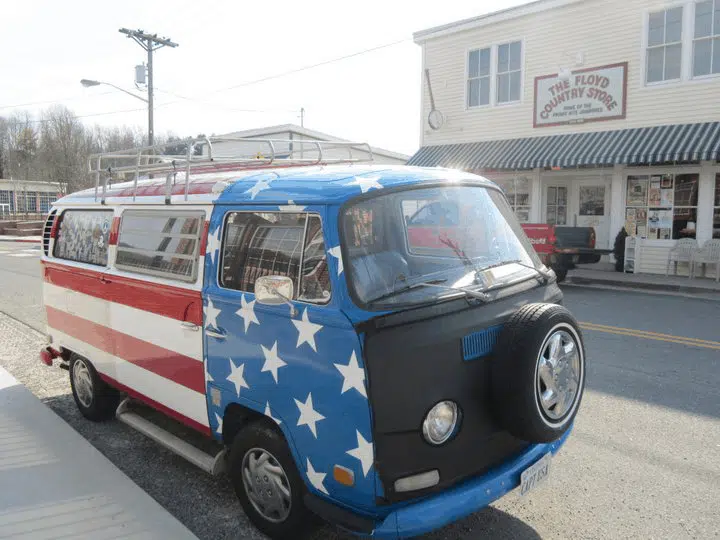
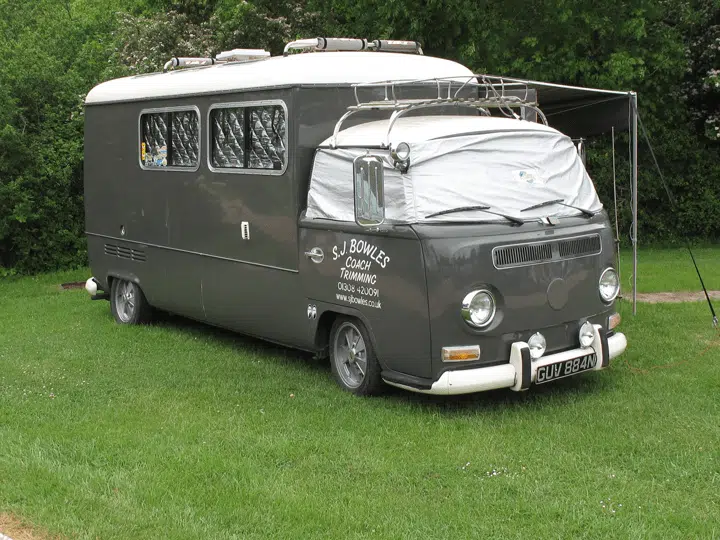
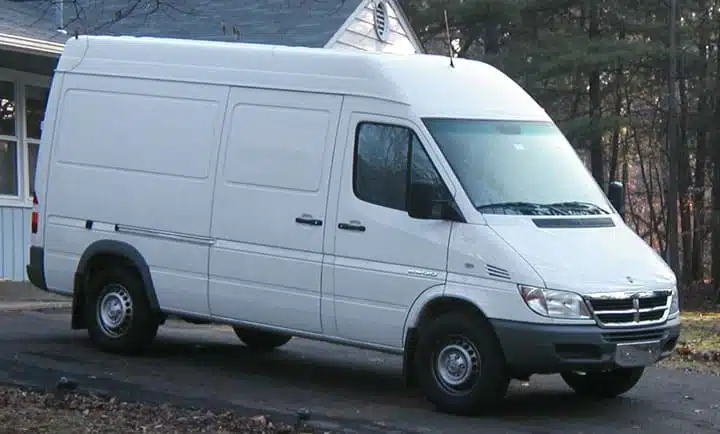
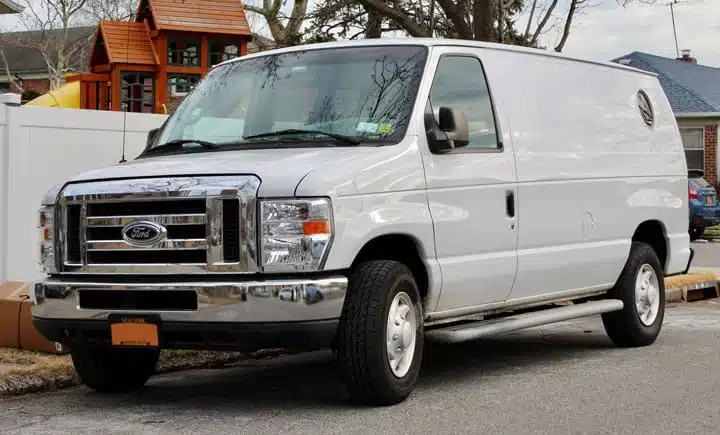
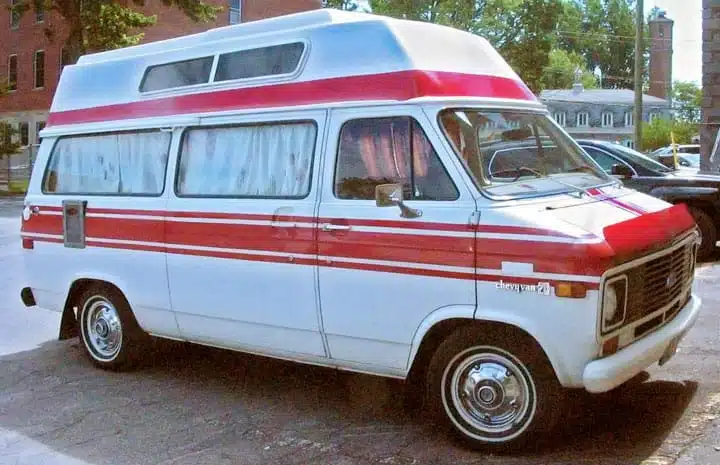
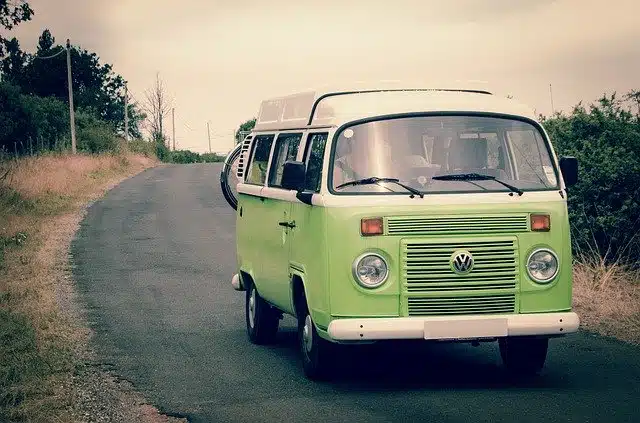
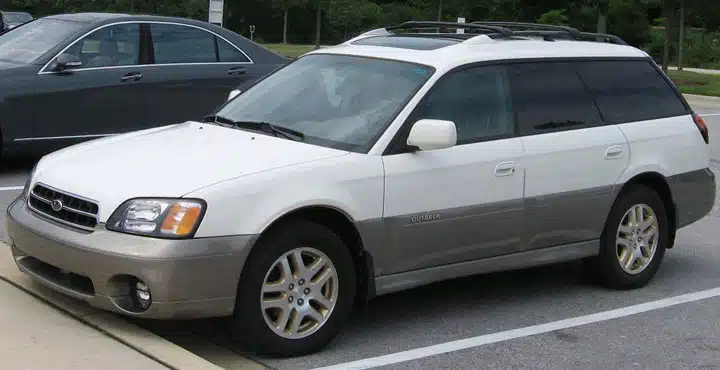
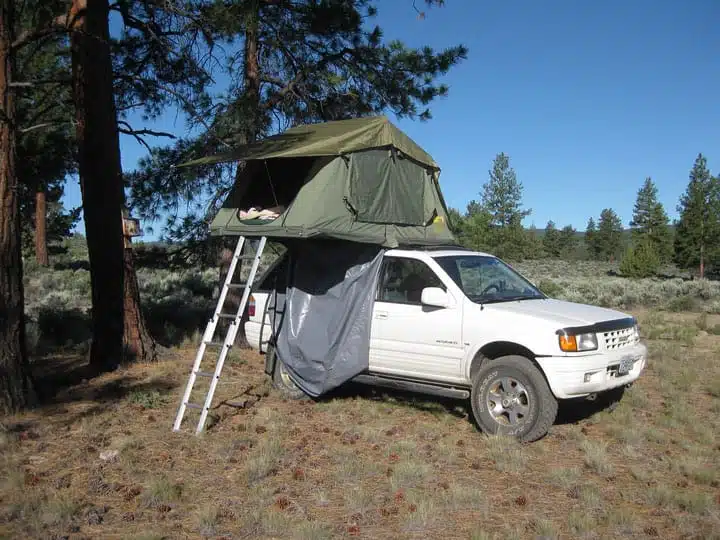
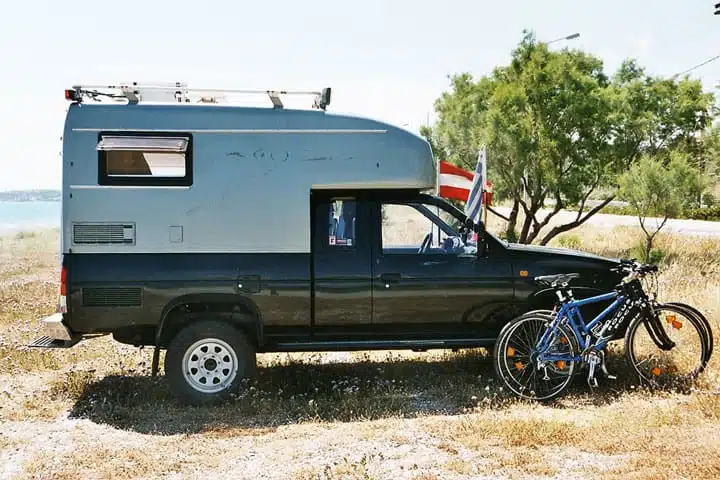


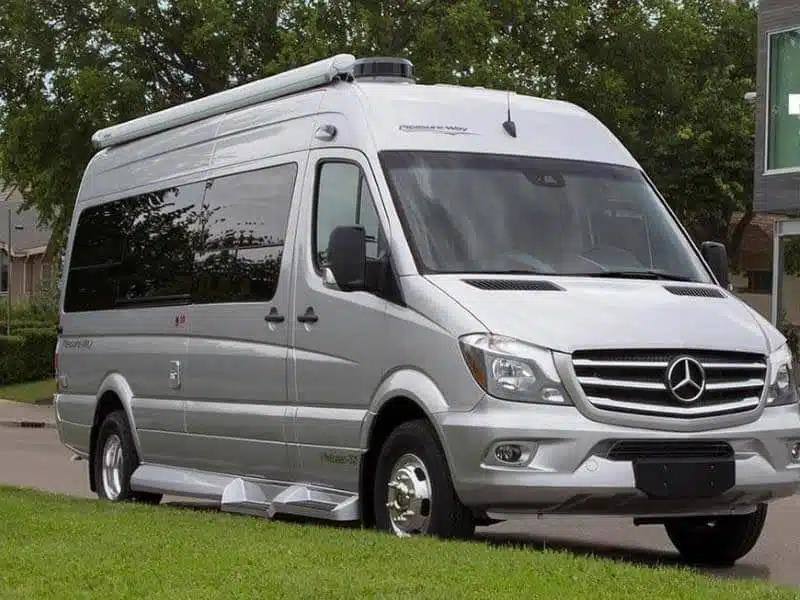
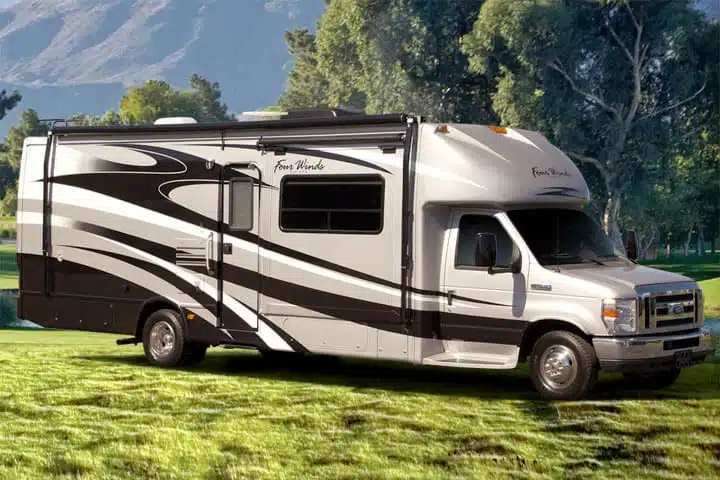

0 Comments